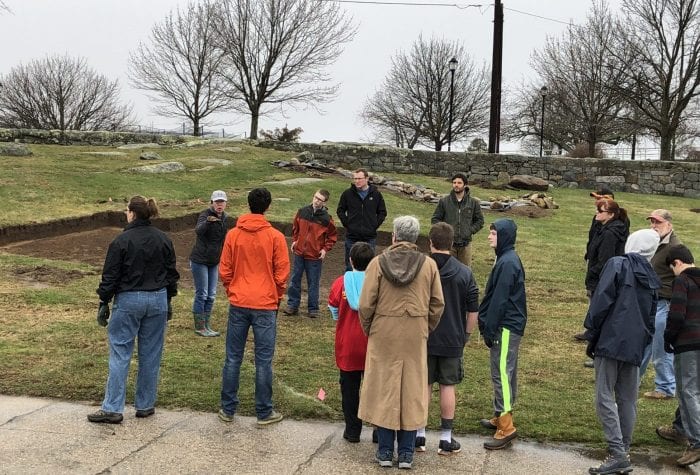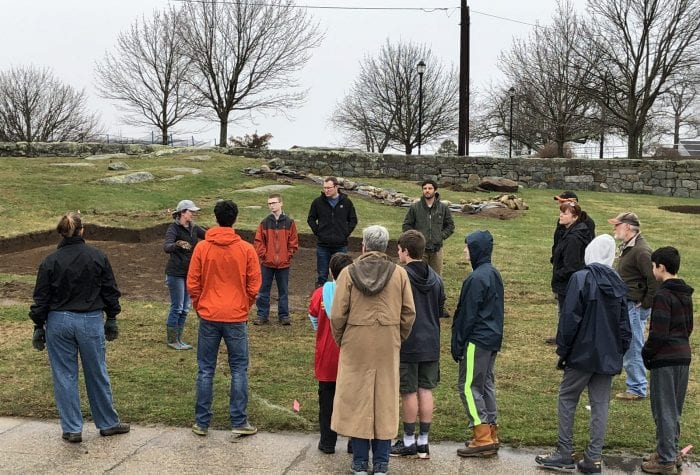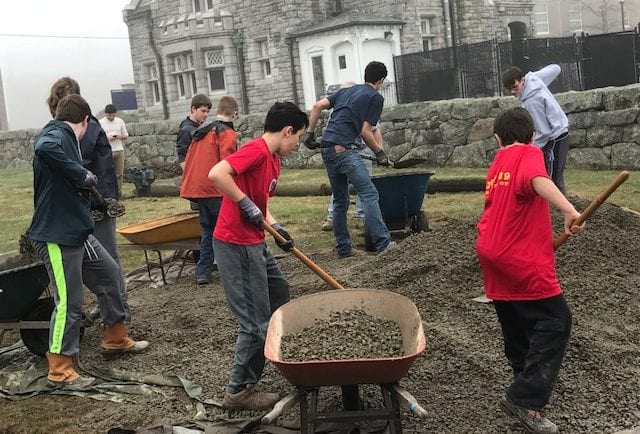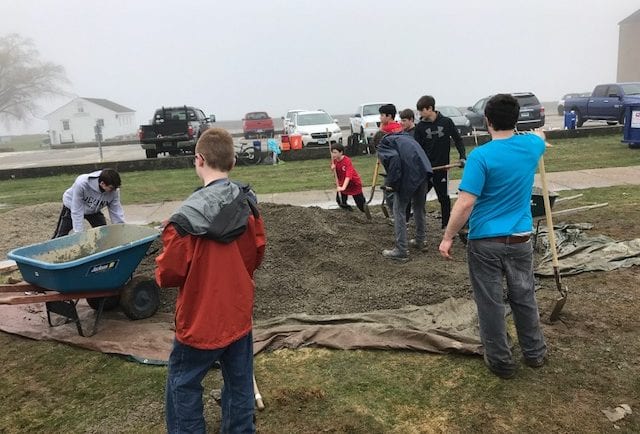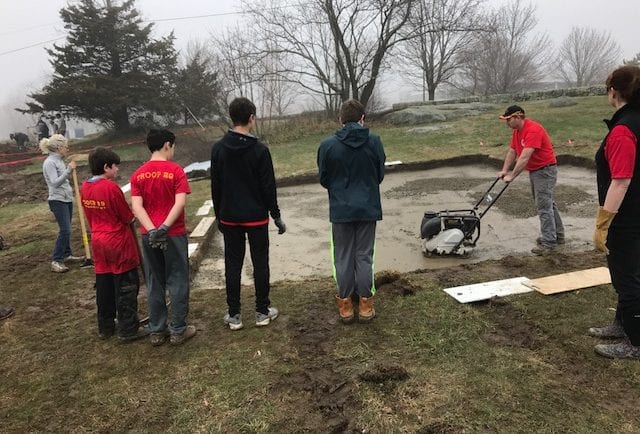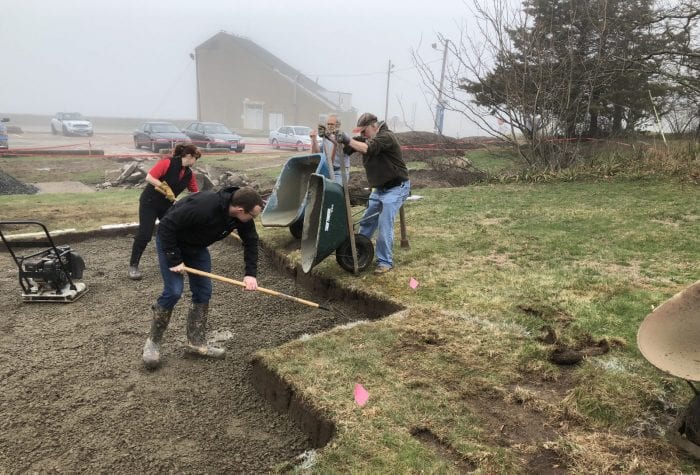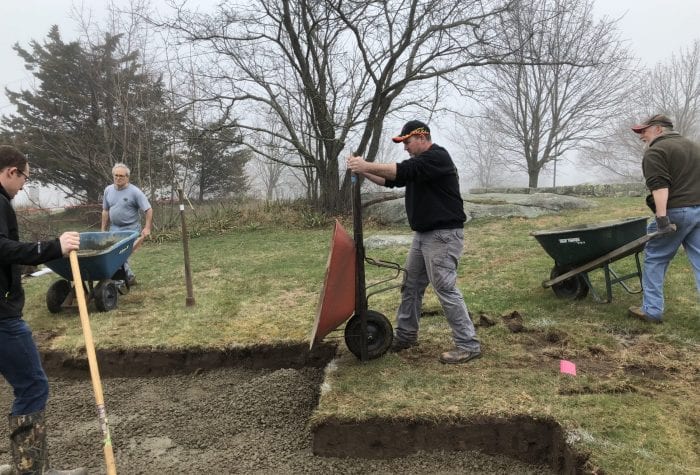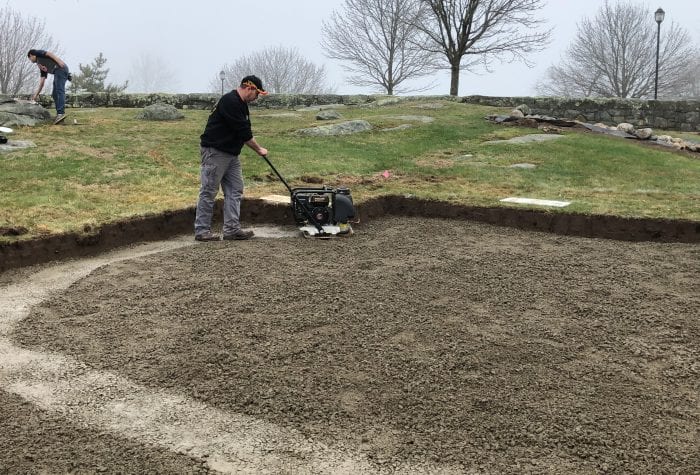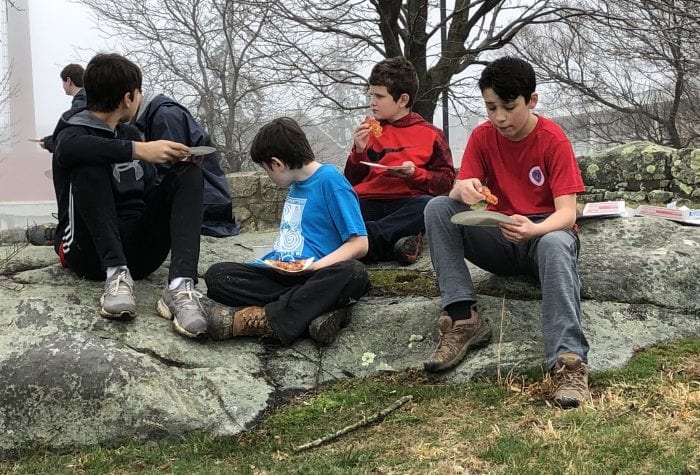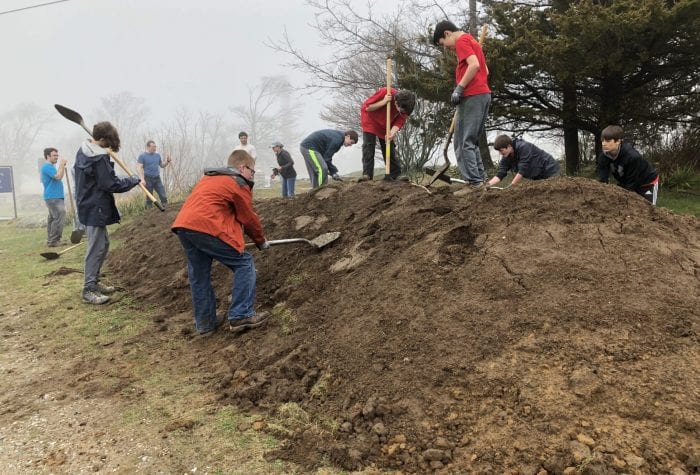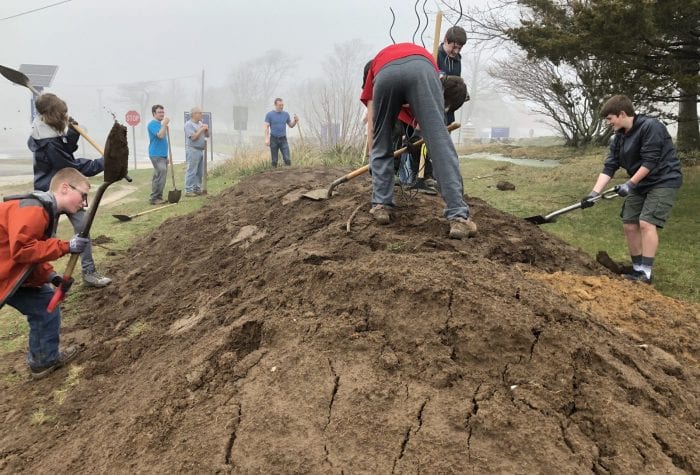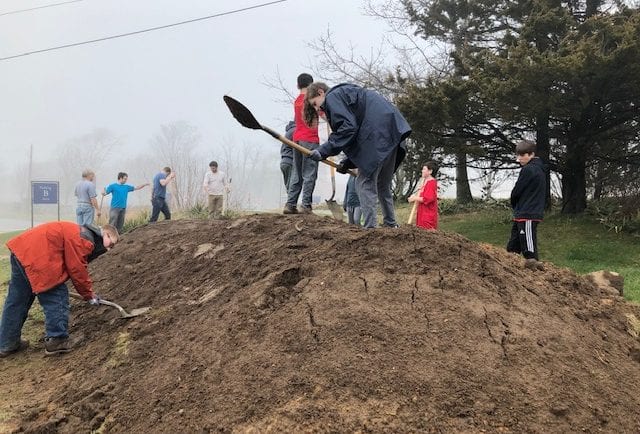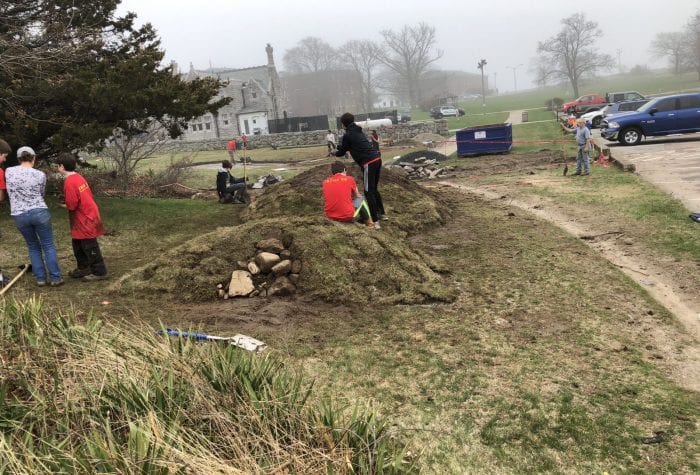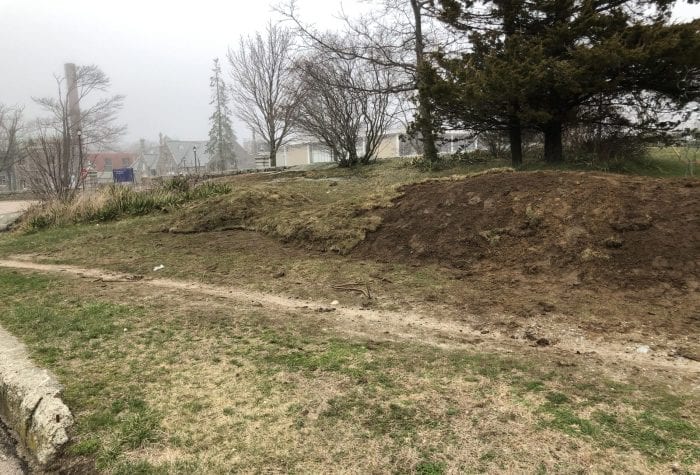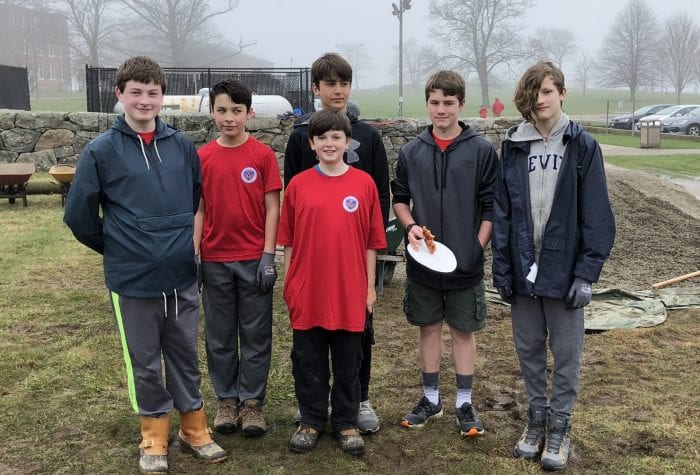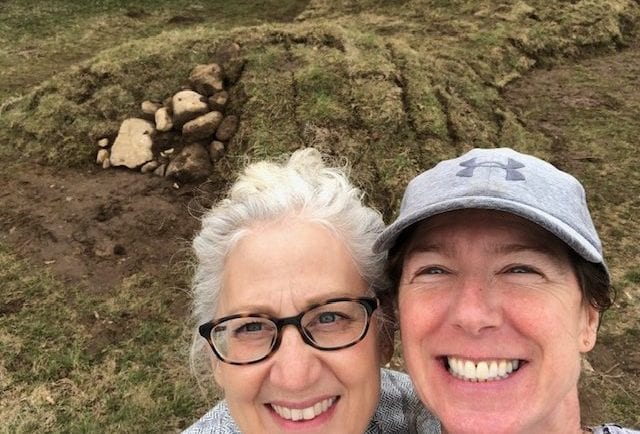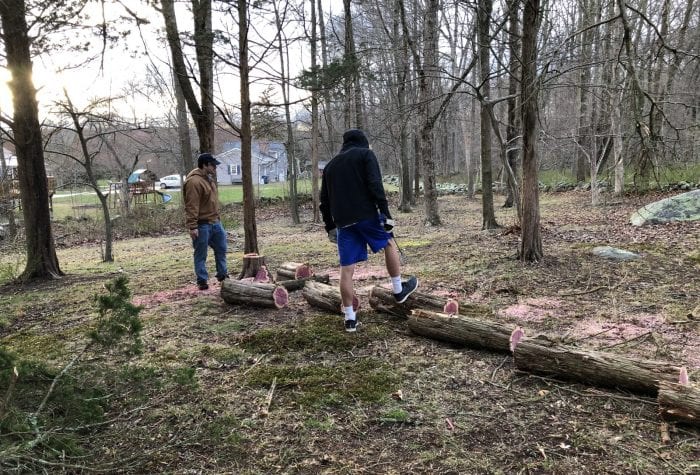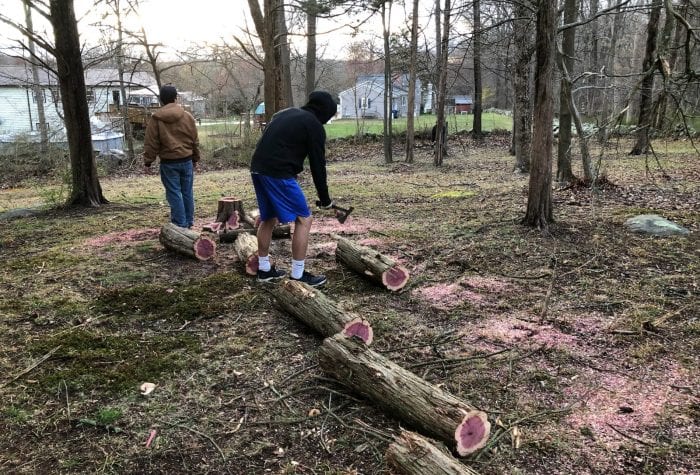This past Saturday several Boy Scout troops joined together to work in the Cognitive Garden. They were asked to help and came without question, many without really knowing what the garden was about, such is their sense of community. One of the best things about learning through service is the exposure to something that may never have been on one’s radar. Learning why it’s important to get children outside is a goal of the garden and something the Scouts know very well. The fact that they are helping to create a space for our youngest citizens to provide a connection to nature, makes it even more fitting that the Scouts are involved in this project.
The Boy Scouts learn through service, but they also learn by doing, especially in their outdoor educational programs where they participate in activities like hiking and camping. These activities allow Scouts to be immersed in nature, learning to conquer challenges and acquiring life skills that lead to resiliency and self-reliance. Those same ideals are what I hope this garden will exemplify for our very young. The children who visit will have the opportunity to learn through “doing” just like our Scouts learn.
While the Scouts may be traversing steep trails and rocky portages, young children can climb the garden’s steep hills, negotiate the labyrinth, or explore the meadow and pollinator garden. The garden will offer an environment that encourages risk-taking and self-reliance as children try to climb boulders by themselves, cooperation as they play with other children in the sandbox, and a sense of freedom as they roll down the grassy slopes and berms.
Just as the Scoutmaster and leaders expose kids to nature’s wonders, this garden will provide a safe space where younger children can immerse themselves in nature under the guidance of parents or caregivers. This garden is for everyone but it’s designed to specifically target children ages 0 to 7, during a critical period of cognitive and developmental growth. Having the opportunity to learn through their senses in a rich natural environment will help to create a more complex brain structure and help them to meet developmental milestones.
As the Scoutmaster guides their troops and encourages them to meet and overcome challenges by themselves to build confidence. So, too, must the teachers and parents of toddlers offer guidance and, at the same time, allow the children to take risks. This is so important for childhood development, psychological well-being, and building a sense of self as well as self-confidence.
The Boy Scouts are an institution in our society because they teach our children so much about life, morality, ethics, camaraderie, cooperation, and caring. But they also get our children outdoors and they teach our children, our future leaders, to be stewards of the environment. We need to instill in our children, even at the youngest ages, a love of nature and a feeling of connection to it. Having the Scouts help build the garden is so fitting and I am so thankful that they, and their parents, are involved.
Thanks to all of you who helped move wheelbarrows full of aggregate to fill the labyrinth and spent time in the “pit” with rakes, the plate compactor, and measuring sticks. And to all who helped form and cover the “berm-whale” with sod. He will henceforth be known as “Scout” in honor of the Scouts who helped to create him. And thanks to the Scoutmasters and leaders who cut down the cedar trees and made “seats” for the amphitheater. I am so happy that you are helping create this amazing space for our community!
